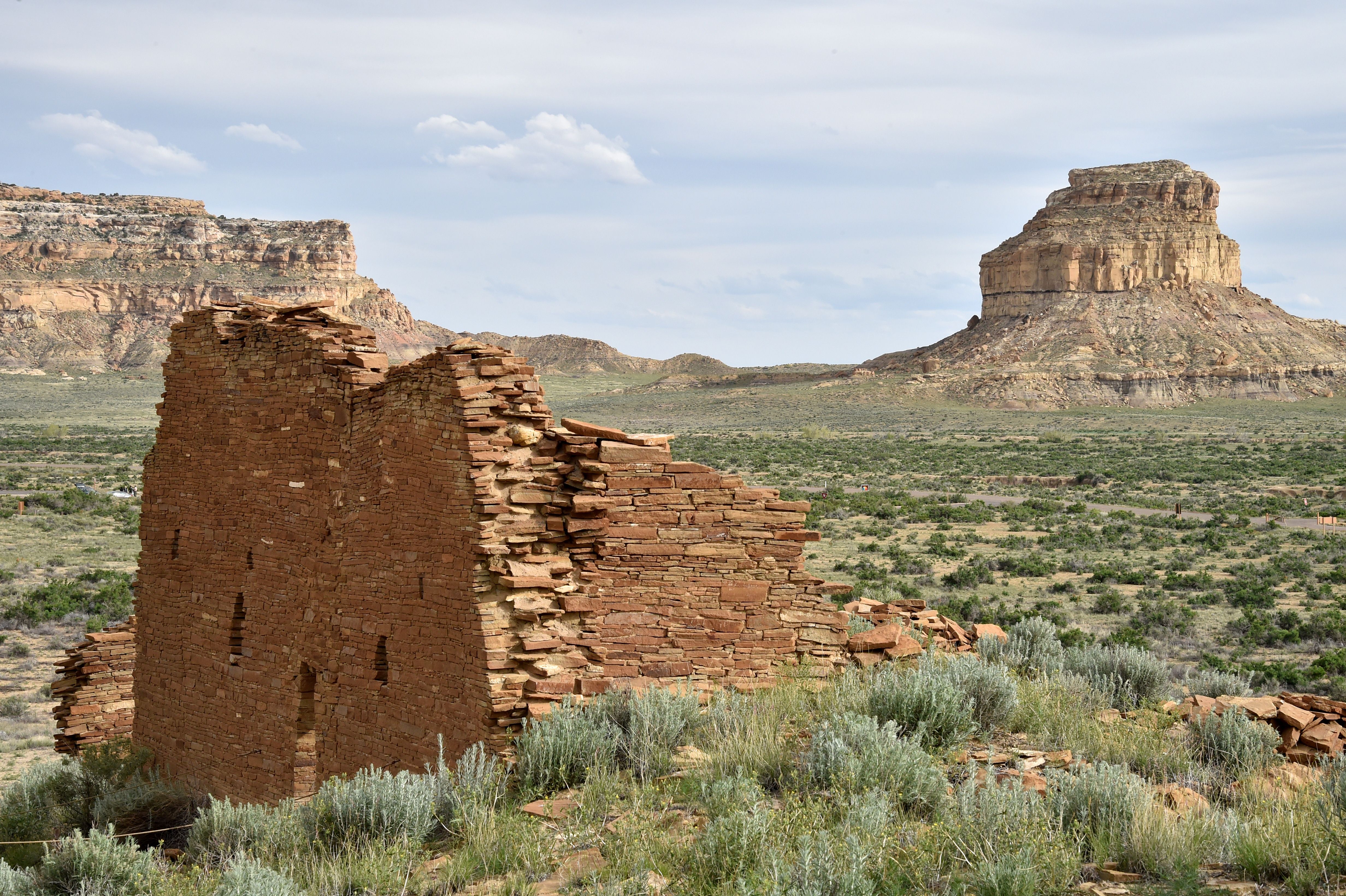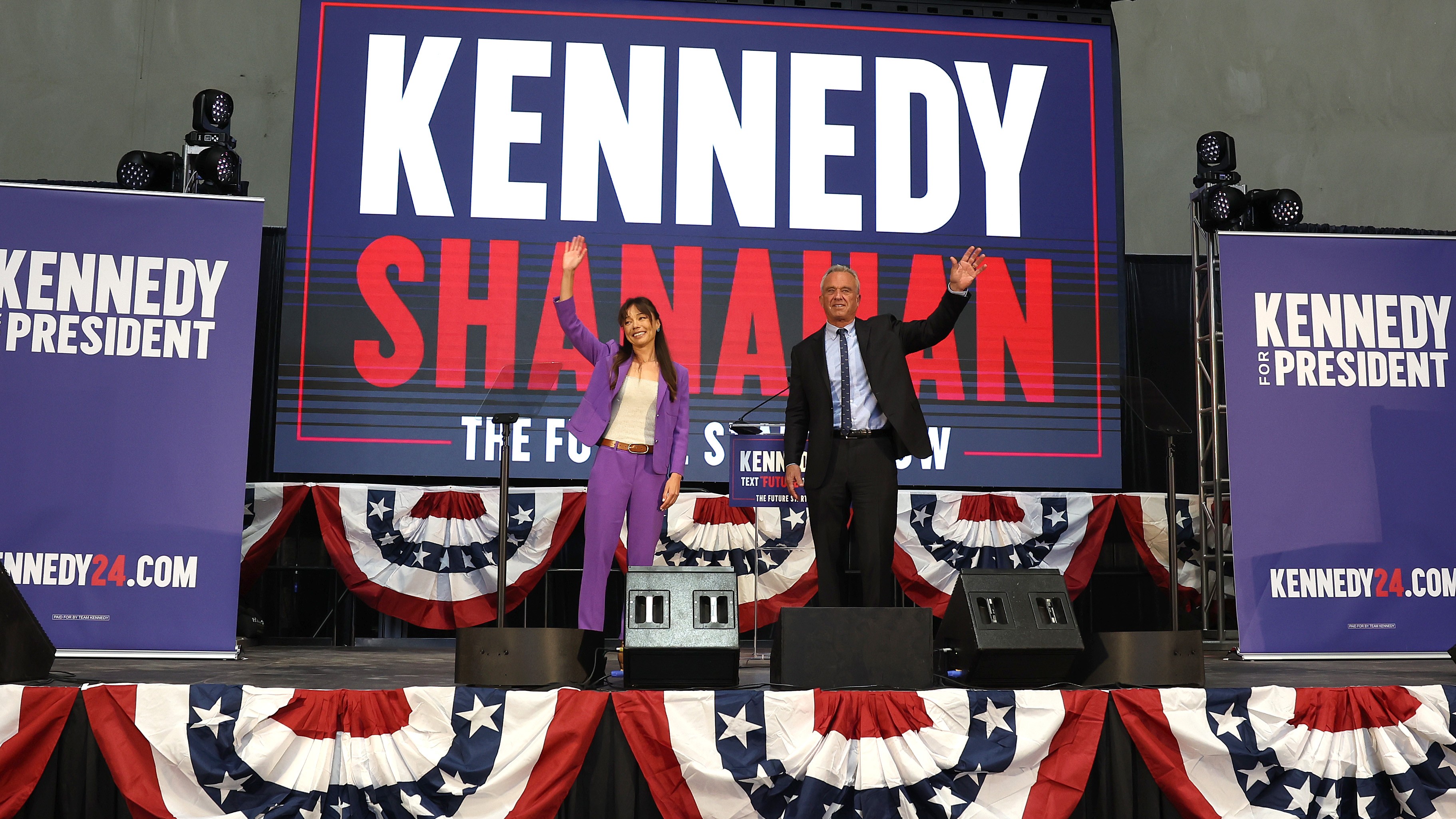The daily business briefing: November 16, 2021
Biden signs the trillion-dollar infrastructure bill, White House proposes drilling ban in Chaco Canyon, and more


A free daily email with the biggest news stories of the day – and the best features from TheWeek.com
You are now subscribed
Your newsletter sign-up was successful
1. Biden signs bipartisan infrastructure bill into law
President Biden on Monday signed the more than $1 trillion bipartisan infrastructure bill. The package was pared down from Biden's original proposal to spend $2.3 trillion to upgrade the nation's roads, bridges, ports, power lines, and broadband internet, but Biden said the version that passed showed that Republicans and Democrats can work together for the good of the nation. "America's moving again, and your life's going to change for the better," Biden said. Biden said the upgrades would help America compete with China and other nations in emerging industries. The law contains $550 billion in new funds, including $66 billion for Amtrak and other rail lines, $65 billion for broadband, $47 billion for responding to wildfires and increasingly frequent storms, and $7.5 billion for electric-vehicle charging stations.
2. Biden administration proposes Chaco Canyon drilling ban
The Biden administration on Monday proposed banning new oil and gas drilling projects for 20 years in and around Chaco Canyon in northwestern New Mexico. The area is rich in oil and gas, but it's also a sacred tribal site. Biden announced the move at the White House Tribal Nations summit where he also signed an executive order telling his Cabinet to come up with a strategy to improve public safety, health, education, and justice for Indigenous Americans. He also promised that his administration would work with tribes to incorporate their "tribal ecological knowledge into the federal government's scientific approach." "No group of Americans has created and cared more about preserving what we inherited than the tribal nations," Biden said. "We have to continue to stand up for the dignity and sovereignty of tribal nations."
The Week
Escape your echo chamber. Get the facts behind the news, plus analysis from multiple perspectives.

Sign up for The Week's Free Newsletters
From our morning news briefing to a weekly Good News Newsletter, get the best of The Week delivered directly to your inbox.
From our morning news briefing to a weekly Good News Newsletter, get the best of The Week delivered directly to your inbox.
The Washington Post The New York Times
3. California pump prices hit record high
California gas prices rose to a record high of $4.682 per gallon on Monday, according to the American Automobile Association. Monday's prices were six-tenths of a cent above a record set Sunday when AAA reported that pump prices in the state had edged above the previous record of $4.671 per gallon set nine years ago. The average price nationwide reached $3.415 on Monday. AAA blamed Northern California rainstorms for reducing production capacity, creating a temporary supply crunch. "Drivers are paying $1.50 more per gallon than a year ago," Doug Shupe, a spokesperson for AAA, told CNN. "It means the person who has the typical midsize sedan with a 14-gallon size fuel tank, they're paying $21 more to fill up that tank today than last year."
4. Stock futures flat ahead of retail sales data
U.S. stock index futures were little changed early Tuesday ahead of fresh retail sales data and Walmart earnings. Futures tied to the Dow Jones Industrial Average, the S&P 500, and the tech-heavy Nasdaq were up by 0.1 percent or less just before 7 a.m. ET. Walmart posts third-quarter earnings before the opening bell. Home Depot reported a 9.8 percent sales jump, beating expectations as people spent more fixing up their homes. Retail sales figures due to be released at 8:30 a.m. ET are expected to show that consumers increased spending in October, with a lift from rebounding auto sales. Investors will look at the data for signs of how consumers, a key economic engine, are handling high inflation blamed on ongoing pandemic-induced supply-chain disruptions.
A free daily email with the biggest news stories of the day – and the best features from TheWeek.com
5. Film crew members narrowly approve deal averting strike
Film industry crew members have approved two contracts with Hollywood producers, averting the chance of a strike that could have halted TV and film productions across the country, union leaders said Monday. The deals passed 56 percent to 44 percent in a system similar to the Electoral College in U.S. presidential races. But the margin in the popular vote among members of the 36 local unions of the International Alliance of Theatrical and Stage Employees was razor-thin, with 50.3 percent voting yes and 49.7 percent voting no. In their last vote, 98 percent of union members supported giving their leaders authority to call a strike. Union leaders reached the three-year deal with producers a month ago, two days before a strike deadline.
Harold Maass is a contributing editor at The Week. He has been writing for The Week since the 2001 debut of the U.S. print edition and served as editor of TheWeek.com when it launched in 2008. Harold started his career as a newspaper reporter in South Florida and Haiti. He has previously worked for a variety of news outlets, including The Miami Herald, ABC News and Fox News, and for several years wrote a daily roundup of financial news for The Week and Yahoo Finance.
-
 How the FCC’s ‘equal time’ rule works
How the FCC’s ‘equal time’ rule worksIn the Spotlight The law is at the heart of the Colbert-CBS conflict
-
 What is the endgame in the DHS shutdown?
What is the endgame in the DHS shutdown?Today’s Big Question Democrats want to rein in ICE’s immigration crackdown
-
 ‘Poor time management isn’t just an inconvenience’
‘Poor time management isn’t just an inconvenience’Instant Opinion Opinion, comment and editorials of the day
-
 Ports reopen after dockworkers halt strike
Ports reopen after dockworkers halt strikeSpeed Read The 36 ports that closed this week, from Maine to Texas, will start reopening today
-
 Would Trump's tariff proposals lift the US economy or break it?
Would Trump's tariff proposals lift the US economy or break it?Talking Points Economists say fees would raise prices for American families
-
 Will college Gaza protests tip the US election?
Will college Gaza protests tip the US election?Talking Points Gaza protests on U.S. campuses pose problems for Biden like the ones that hurt Lyndon B. Johnson in the '60s
-
 Can Trump get a fair trial?
Can Trump get a fair trial?Talking Points Donald Trump says he can't get a fair trial in heavily Democratic Manhattan as his hush money case starts
-
 What RFK Jr.'s running mate pick says about his candidacy
What RFK Jr.'s running mate pick says about his candidacyTalking Points Robert F. Kennedy Jr.'s' running mate brings money and pro-abortion-rights cred to his longshot presidential bid
-
 Housing costs: the root of US economic malaise?
Housing costs: the root of US economic malaise?speed read Many voters are troubled by the housing affordability crisis
-
 Did the Biden impeachment inquiry just collapse?
Did the Biden impeachment inquiry just collapse?Talking Points Key GOP impeachment inquiry witness Alexander Smirnov says Russian intelligence fed him lies
-
 The daily business briefing: January 24, 2024
The daily business briefing: January 24, 2024Business Briefing The S&P 500 sets a third straight record, Netflix adds more subscribers than expected, and more
